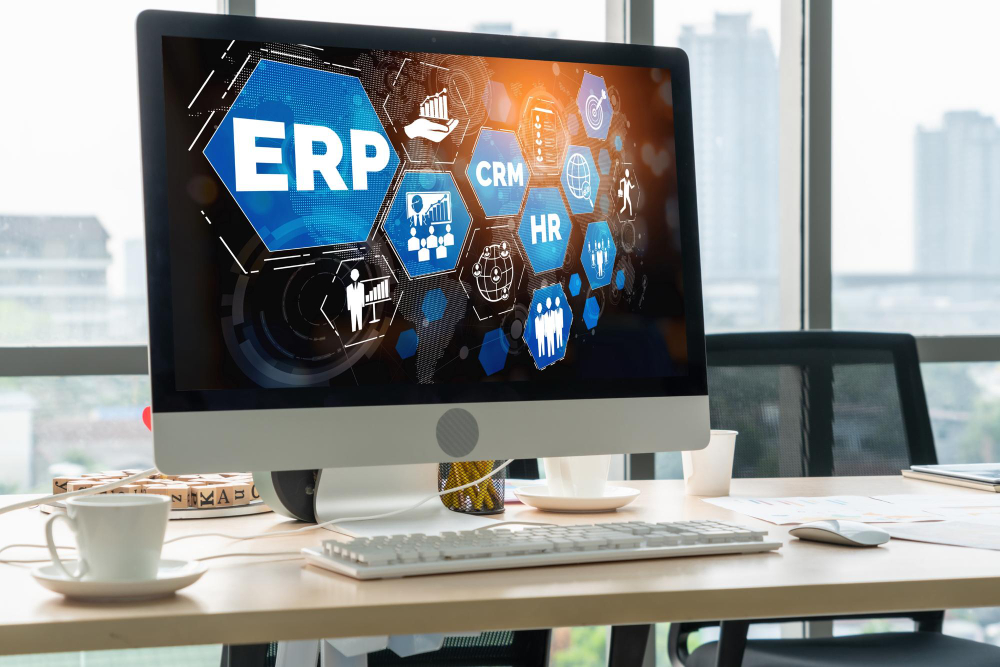
Top 8 Mistakes of ERP Implementation You should Avoid
ERP, or enterprise resource planning system, is a business management software providing intelligent solutions to manage day-to-day business activities efficiently. ERP system simplifies everyday business processes and ties all the data under a single database. All authorized users can access the data without any hassle.
ERP implementation for the business can change the way it is operated. It is an agile, flexible and simplified solution to accelerate business growth. An ERP system makes it efficient to make strategic business decisions for the company’s better future. ERP systems declutter the complexities and deliver organized data and forecasts.
An ERP system performs all the core functions of the business, such as supply chain management, managing the finance of the entire company, sales and marketing operations, customer relationship management and many more functions.
ERP implementation is a big challenge for any business. It involves many tasks. The main aim of implementing it for your business is to streamline workflows and reduce unwanted expenses. The business owner should form a separate team and create multiple plans to implement ERP software successfully. Data transfer is one big issue.
ERP deployment is a big challenge because a business spends lakhs of rupees during its purchase. It’s a significant investment for the company impacting money, time and resources.
Mistakes to avoid during ERP implementation
ERP implementation is a complex task. Let’s discover more about the common ERP implementation mistakes that have to be avoided.
Unclear regarding the requisitions
An ERP system automates the business process and simplifies complex business processes. Note that the efficiency of the business is effective only if the ERP system integrates and automates all the business operations.
An ERP system identifies the shortcoming in the business and automates it to make it more efficient. If your current system is an outdated and ineffective system for your business, updating your business with an ERP system is the right decision. Viewing ERP implementation solely as a short-term investment can lead to underestimating the ongoing costs of training, maintenance, and system upgrades. It progresses and speeds up your operations efficiently without disrupting the workflow. So first, list down your requirements if you want to upgrade your ERP system.
Every employee’s suggestions matter
ERP software implementation is a massive decision for the company. Usually, C-level executives decide to deploy it in the company. But that is not enough. First, thoroughly get suggestions from the employees from all the departments. While gadgets in daily life simplify tasks, ERP implementation mistakes can cause major disruptions in core business processes. The employees from finance, manufacturing, warehouse, sales and marketing, and customer relations have to contribute their opinions regarding the implementation. Post consultation, create a report, then decide to implement an ERP system for your business.
This way, ERP implementation can be more effective as it will be a well-planned decision.
Complicated Data transfers
Data is very significant for a business. It is essential to scrutinize data. Segrate the important and unimportant data. Organize the data before planning to transfer it to the ERP system. When implementing an ERP system, it is vital to share all the data without missing out. If any data is lost, it will be tough for the business to manage and track it. So first, backup all the data and store it in silos. Later during integration, transfer all the data, even if you miss out, you can trace it back up.
Fix the required budget for technical staff
ERP implementation is tedious for every business. Most businesses assume that only the purchase of the software is expensive. But note that even implementation cost is expensive, and some amount has to be set aside to pay for implementation. Equally, the technical staff should be paid adequately to implement the software without any issues in the future successfully.
Choose the right ERP system vendor
Business owners choose the best ERP system for their business. So usually, they go for the prominent vendors with huge reputations in the industry. But that’s not how you should select your vendor. First, understand which ERP system caters to your business requirements. Your ERP vendor should understand your business needs so that when you make a considerable investment, your ROI should be higher. So that’s how you should make your decision.
Inspect how the vendor provides customer support after implementation. Find Out the duration your vendor is committing to during ERP implementation. Most commonly, the business owner will only know about functionality restrictions and other related issues after the performance.
Change management after ERP implementation
Change management is crucial for a business. The executives and all the employees interacting with the ERP software should be well-equipped to accept and adapt. Change management this concept is avoided in most cases. It is not that the IT team will come and sort the issue each time if you cannot interact with the system. Training should be given to all the employees to accept change.
Lacking maintenance/support plan
ERP implementation is an ongoing process. First, you can integrate the ERP system with your business processes. At first, the employees will face challenges in interacting with the system. As time goes on, the employees will get used to the software. The major issue is the maintenance of the software. An IT team will have to continuously service and look into the problems that arise over time.
Avoiding extensions
Deploying an ERP system is all right, but when you implement it, your ERP system should be open to embracing new technologies and third-party plug-ins. Trends and technology in business keep on evolving. So your software should be ca[able to accept it without any hassle. Note that ERP systems are expensive, and cannot change them as you please.
ERP system implementation is a critical process that requires a lot of planning and decision-making. The benefits of ERP implementation for your business are enormous. If every business employee participates energetically, the implementation will go smoothly. When employees actively come up with intelligent, instant solutions, it is easy to deploy the software quickly and integrate it with the business processes. The whole implementation process becomes effortless. So before implementation, look into all these crucial aspects and do the best for your business.




